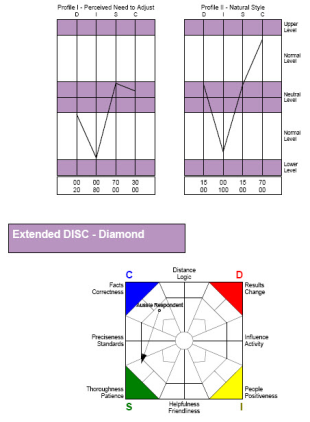DISCovering: LEAVING VOICEMAILS AND SENDING EMAILS
For DISC Styles
1: Dominance High “D” Style
Leaving Voicemails for Dominant Styles
- Give your phone number at beginning and end
- Articulate clearly at a quicker rate of speech
- Tell them exactly why you are calling
- Tell them exactly what you want them to do
- Let them know what to expect with next step
Sending e-mails to Dominant Styles
Robert,
I know you’re constantly looking for ways to increase efficiencies, leverage technology to your advantage and gain a competitive advantage over your competition.
Click here to read a hard-hitting article that teaches how to leverage high-tech to create high-touch client relationships.
Success all ways,
Scott Zimmerman
The Cyrano Group
2: Influence High “I” Style
Leaving Voicemails for Interactive Styles
- Use a warm, expressive tone of voice
- Give the impression that you are upbeat
- Suggest a meeting where you can share ideas
- If appropriate, give them your “private” number
- Let them know the first meeting is exploratory
Sending e-mails to Interactive Styles
Dear Bob,
I know you’re big into sending out info that increases your top-of-mind awareness with your clients, prospects and colleagues. That’s what makes you so successful!
Check out this cool article that teaches how to leverage high-tech to stay in meaningful contact with hundreds of people.
Let me know what you think!
Best,
Scott

3: Steadiness High “S” Style
Leaving Voicemails for Steady Styles
- Lean back in your chair and relax
- Smile as you speak warmly at a measured rate
- Sound personable; yet still professional
- If possible, tell them who referred you
- Thank them in advance for returning your call
Sending e-mails to Steady Styles
Dear Robert,
I know you care deeply about keeping your clients, helping others and staying in contact with all your prospects.
I just found this article that teaches how to leverage high-tech to create high-touch client relationships and I wanted you to have the information, too.
Feel free to call me if you want to DISCuss this personally.
Warmly,
Scott
4: Conscientious High “C” Style
Leaving Voicemails for Compliant Styles
- Articulate clearly at a steady rate of speech
- Remain cool, calm and professional
- Tell them exactly why you are calling
- Tell them exactly what you want them to do
- Let them know what to expect with next step
Sending e-mails to Compliant Styles
Robert,
I just read a very informative article about how smart salespeople are systematising every aspect of their client/prospect communication activities.
You may click here to read an article that teaches how to leverage high-tech to automate high-touch campaigns.
Toward your marketing success,
Scott Zimmerman
Managing Partner of TheCyranoGroup.com
Interested in becoming DISC certified?
Visit our Talent Tools Accreditation Calendar
Like to organise a DISC Workshop for your team?
Check out our Take Flight with DISC Workshops

 he attended one of our two-day
he attended one of our two-day
